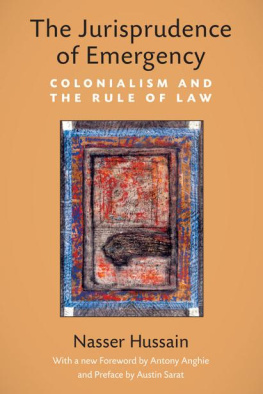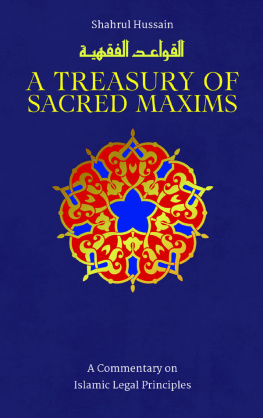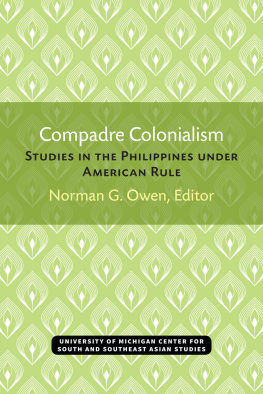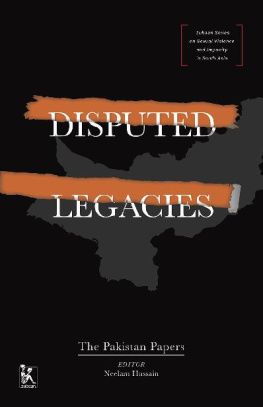Nasser Hussain - The Jurisprudence of Emergency: Colonialism and the Rule of Law
Here you can read online Nasser Hussain - The Jurisprudence of Emergency: Colonialism and the Rule of Law full text of the book (entire story) in english for free. Download pdf and epub, get meaning, cover and reviews about this ebook. year: 2009, publisher: University of Michigan Press, genre: Politics. Description of the work, (preface) as well as reviews are available. Best literature library LitArk.com created for fans of good reading and offers a wide selection of genres:
Romance novel
Science fiction
Adventure
Detective
Science
History
Home and family
Prose
Art
Politics
Computer
Non-fiction
Religion
Business
Children
Humor
Choose a favorite category and find really read worthwhile books. Enjoy immersion in the world of imagination, feel the emotions of the characters or learn something new for yourself, make an fascinating discovery.
- Book:The Jurisprudence of Emergency: Colonialism and the Rule of Law
- Author:
- Publisher:University of Michigan Press
- Genre:
- Year:2009
- Rating:4 / 5
- Favourites:Add to favourites
- Your mark:
- 80
- 1
- 2
- 3
- 4
- 5
The Jurisprudence of Emergency: Colonialism and the Rule of Law: summary, description and annotation
We offer to read an annotation, description, summary or preface (depends on what the author of the book "The Jurisprudence of Emergency: Colonialism and the Rule of Law" wrote himself). If you haven't found the necessary information about the book — write in the comments, we will try to find it.
The Jurisprudence of Emergency: Colonialism and the Rule of Law — read online for free the complete book (whole text) full work
Below is the text of the book, divided by pages. System saving the place of the last page read, allows you to conveniently read the book "The Jurisprudence of Emergency: Colonialism and the Rule of Law" online for free, without having to search again every time where you left off. Put a bookmark, and you can go to the page where you finished reading at any time.
Font size:
Interval:
Bookmark:

Nasser Hussain
The University of Michigan Press
Ann Arbor
First paperback edition 2019
Copyright by the University of Michigan 2003, 2019
All rights reserved
Published in the United States of America by
The University of Michigan Press
Manufactured in the United States of America
No part of this publication may be reproduced, stored in a retrieval system, or transmitted in any form or by any means, electronic, mechanical, or otherwise, without the written permission of the publisher.
A CIP catalog record for this book is available from the British Library.
Library of Congress Cataloging-in-Publication Data
Hussain, Nasser, 1965
The jurisprudence of emergency : colonialism and the rule of law /
Nasser Hussain.
p. cm. (Law, meaning, and violence)
Includes bibliographical references and index.
ISBN 0-472-11328-3 (cloth : acid-free paper)
1. War and emergency legislation. 2. Sovereignty. 3. Rule of
law. 4. ColoniesLaw and legislation. I. Title. II. Series.
k3344 .h87 2003
340'.11dc212003005027
ISBN 978-0-472-03753-7 (paper: acid-free paper)
ISBN 978-0-472-12602-6 (ebook)
To my parents and Omar
This book began as a dissertation at the University of California, Berkeley. My thanks to all of my teachers there: Tom and Barbara Metcalf, Tom Laqueur, David Lieberman, David Lloyd, Eugene Irschick, and Martin Jay. Thank you to the Harvard Society of Fellows, and in particular Amartya Sen, for offering me time and space to work. I completed this manuscript at Amherst College, and I thank my colleagues in the Department of History and the Department of Law, Jurisprudence, and Social Thought. My colleagues and dea'r friends in the latter department, Lawrence Douglas and Martha Umphrey, read and commented on the manuscript, and I thank them both. In particular, I would like to express my great gratitude to Austin Sarat for his constant support and his dedication to nurturing the work of junior scholars.
The Henry R. Luce Foundation not only underwrote my position at Amherst College but also was generous in support of further research. Thank you also to Lisa Raskin, the Dean of Faculty at Amherst College. Melissa Ptacek and James Martel have been constant interlocutors throughout this undertaking and I thank them for their intellectual and emotional support. Thanks to many other friends: Dipesh Chakrabarty, Jennifer Culbert, Faisal Devji, Tom Dumm, Peter Goodrich, Piyel Haldar, Uday Mehta, Peter Rush, and Alison Young. An earlier version of parts of chapters 1 and 4 appeared in Law and Critique 10 (1999). Thank you to that journal and to Kluwer Academic Publishers for permission to reprint.
by Antony Anghie
We live in an era in which the concept of emergency has become the focus of much theorizing and discussion, this largely as a consequence of the war on terror launched by the United States after the infamous attacks of 9/11. Whereas previously emergency was something of a specialized area of study in constitutional law and human rights, it became a central concern of those seeking to understand the political order that had been so traumatically inaugurated by those attacks. The Jurisprudence of Emergency, a book about emergency powers, has already acquired the status of a classic. How then might it be read by a new generation of scholars, this in a time when many of its conclusions, presented here with much care and subtlety and modulation, have become almost verities: we life in a permanent state of emergency. The central and powerful argument made by Nasser Hussain is that we have always, in a sense, lived in a state of emergency because emergency is not a departure from the rule of law, but rather an inherent part of that rule. This is the powerful claim that is made here with a cumulative and persuasive force achieved through his superb deployment of jurisprudence, history, and political theory.
The most prominent feature of Hussains analysis is his insistence on the centrality of the colonial experience. It is in the colony that law is confronted with the challenge of producing itself as the rule of law, transparent, accountable, limited, while also possessing within itself the potential to authorize an endless violence posited as essential to defend against the racial other, the savage, the barbaric. The link between the colonial experience and the modern is quietly but insistently made, and the book takes as one of its central themes the constitutive Page xii role of the colonial in the articulation of the modern. Colonialism makes explicit the connection between racial and cultural conditions and forms of rule in generaland in doing so, as we shall see, also makes explicit the relation between a rule of law and emergency, a relation that is as intimate as it is anxious (p.32).
This is a theme explored with a compelling depth and range. In Nassers careful study of the operation of the rule of law in the colonies in different circumstanceshabeas corpus, the Amritsar massacre, and General Dyerhe carefully adumbrates with great subtlety the various forms of emergency rule and the ideological justifications for such rule produced by scholars committed to the ideals of the rule of law as they struggle to reconcile conquest and the rule of law. Colonialism demands the ongoing use of force and, correspondingly, the continuous reconstruction of the concept of the rule of law to accommodate such violence.
It is noteworthy that although The Jurisprudence of Emergency was published in 2003, this book makes no reference to 9/11 and all that followed from it. In a sense, however, that is to its advantage. Nasser wrote later with eloquence about Guantanamo and other aspects of the war on terror such as drone attacks.
But it is because he returns to the very fundamentals of emergency rule that he both illuminates and also transcends 9/11 and the shaping influence it has had on our scholarship. By looking at another time, at the different forms and guises and flexibility of emergency as it mutates in responses to new invocations of disorder, he illuminates the varieties of emergency we will encounter in a globalized world. We note, for instance, that the United Kingdom invoked the Anti-terrorism, Crime and Security Act of 2001 to freeze the British held assets of the Icelandic bank, Landsbanki. While it was in the colonial context that certain relationships between violence, law, emergency, and race become most vividly evident, the structures of power and law that resulted now have a global application, whether it be the postcolonial development state, or the advanced capitalist state seeking to fight off the threats of financial collapse. Racist forces in many parts of the world, summoning up threats to the purity of the nation, revert yet again to the language of emergency to exclude and suppress. It is here that Nassers exceptional interdisciplinary facility is so valuable in tracing the ways in which history, theory, and jurisprudence relate to each other to produce the structure Page xiii of emergency. It is unsurprising that lawyers arguing the case of Rasul v. Bush in the US Supreme Court found Nassers work valuable, and that he contributed an amicus brief in that case. The final chapter of the book sketches in telling ways the wider ramifications of his case studies, as Nasser adroitly shifts from one scale and discipline and register to another.
Font size:
Interval:
Bookmark:
Similar books «The Jurisprudence of Emergency: Colonialism and the Rule of Law»
Look at similar books to The Jurisprudence of Emergency: Colonialism and the Rule of Law. We have selected literature similar in name and meaning in the hope of providing readers with more options to find new, interesting, not yet read works.
Discussion, reviews of the book The Jurisprudence of Emergency: Colonialism and the Rule of Law and just readers' own opinions. Leave your comments, write what you think about the work, its meaning or the main characters. Specify what exactly you liked and what you didn't like, and why you think so.











